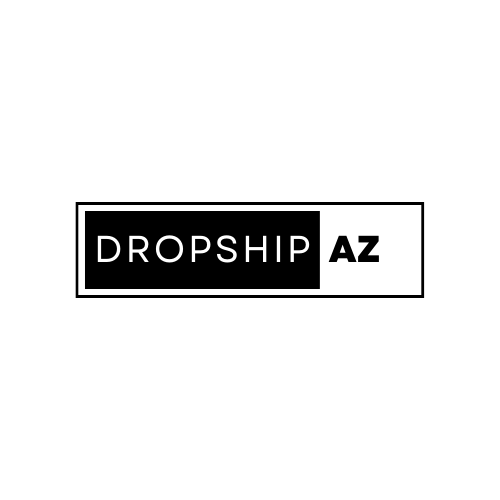What is a Sales Funnel ?
A sales funnel is a visual representation of the process that customers go through when purchasing a product or service. It is a marketing framework that helps businesses understand and navigate their customers’ journey from being mere prospects to becoming loyal customers and understanding the sales funnel stages typically consist of different steps that guide potential customers along the buying process, ultimately leading them to make a purchase.

What is a sales funnel management and how does it work and way your sales funnel works?
Understanding the concept of a funnel example and sales funnel to increase and different stages of your sales
The concept of a sales funnel management is based on the idea that not all potential customers are ready to make an immediate purchase. Instead, they move through various stages of progress through the funnel depending on their level of interest and readiness to buy. This concept allows businesses to tailor their marketing efforts and interactions with customers based on where they are in the buying journey
Exploring the stages of a sales funnel looks like sales pages and sales funnel in place
A typical sales funnel consists of several stages, including the top of your sales funnel, the middle of the funnel, and the bottom of the sales funnel. Each stage represents a different level of engagement and progress in the sales process. Understanding these stages is crucial for effectively managing and optimizing your create a successful sales funnel.
How does a work sales funnel allows and decision stage of the sales?
A sales funnel works by guiding potential customers through a series of steps designed to convert them into paying customers. At the top of the funnel, businesses aim to attract as many potential customers as possible. In the middle of the funnel, the focus shifts towards nurturing leads and start building your sales funnel. Finally, at the bottom of the funnel, businesses aim to close the sale and turn leads into customers.
Why is a sales funnel important for your business and sales funnel is a marketing?
The benefits of a sales funnel of having a sales funnel, effective sales funnel allows
A sales funnel offers several benefits for businesses. It provides a structured and strategic approach to sales and marketing and sales efforts, allowing businesses to better understand their customers and their buying behaviors. A well-designed sales funnel can also help businesses generate more leads, increase conversion rates, and ultimately drive revenue growth.
How a sales funnel can help manage your sales pipeline
Managing a sales pipeline can be challenging without a clear framework in place. A sales funnel provides businesses with a visual representation of their sales process, making it easier to track and manage leads at each stage. By effectively managing their sales pipeline through a sales funnel, businesses can ensure that no potential customer falls through the cracks and that each lead is nurtured and followed up on.
Utilizing funnel metrics to improve your sales process
One of the advantages of using a sales funnel is the ability to track and analyze key funnel metrics. These metrics provide insights into the effectiveness of your sales process and allow you to identify areas for improvement. By monitoring metrics such as conversion rates, lead sales velocity, and customer lifetime value, businesses can make data-driven decisions and optimize their sales process to achieve better results.
How to build an effective, sales funnel might need tweaks?
Creating a sales funnel from scratch
Building a sales funnel from scratch involves several steps. Firstly, you need to clearly define your target audience and understand their needs and pain points. Next, you’ll need to create awareness and attract potential customers through targeted marketing strategies. After that, you’ll need to nurture leads and build relationships through personalized communication and engagement. Finally, you’ll need to close the sale and turn leads into paying customers.
Key components and strategies for a successful sales funnel and article on sales funnel templates
A successful sales funnel requires several key components and strategies. These include a well-designed landing page to capture leads, compelling and persuasive content to educate and engage potential customers, effective sales funnel your sales funnel lead nurturing techniques such as email marketing and marketing automation, and a seamless sales process that provides a positive customer experience.
Using marketing automation and email marketing in your sales funnel and success of your sales funnel
Marketing automation and email marketing play a crucial role in optimizing your sales funnel. These tools can help businesses automate repetitive tasks, nurture leads, and deliver personalized and targeted content to potential customers. By leveraging marketing automation and email marketing, businesses can save time, improve efficiency, and increase the likelihood of converting leads into customers.
Understanding the different stages of build a successful sales funnel
Top of the funnel: Attracting potential customers
The top of the funnel is where businesses aim to attract potential customers and create awareness about their products or services. This stage involves various marketing activities such as content marketing, social media advertising, and search engine optimization to drive traffic and generate leads, sales funnel for your business
Middle of the funnel: Nurturing leads and building relationships
In the middle of the funnel, businesses focus on nurturing leads and building relationships with potential customers. This stage involves lead nurturing strategies such as personalized email campaigns, educational content, and targeted advertisements to keep potential customers engaged and move them further down the funnel.
Bottom of the funnel: Closing the sale and turning leads into customers
The bottom of the funnel is where businesses aim to close the sale and turn leads into paying customers. This stage involves techniques such as personalized sales offers, direct communication with potential customers, and providing incentives or discounts to encourage them to make a purchase.
How to effectively manage your sales marketing funnel?
The role of sales reps and your sales team in the funnel and stage of the sales funnel
Sales reps and your sales team play a crucial role in managing your sales funnel. They are responsible for engaging with potential customers, following up on leads, and guiding them through the different stages of the funnel. Clear communication, effective collaboration, and ongoing training are essential to ensure that your sales team is aligned with the goals and strategies of your sales funnel and stage of your sales funnel, marketing and sales, need a sales
Optimizing your process within the sales cycle, example of a sales funnel
Optimizing your process within the sales funnel involves continuously analyzing and refining your strategies and tactics. By closely monitoring your sales metrics and customer feedback, you can identify areas of improvement and implement changes to enhance the efficiency and effectiveness of your process.
Aligning your sales and marketing efforts to maximize results
To maximize the results of your sales funnel, it’s essential to align your sales and marketing efforts. Effective collaboration and communication between these two departments can lead to a seamless customer journey, consistent messaging, and a unified approach to generating leads and closing sales.







